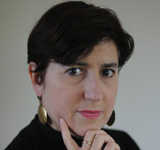 I am writing from London and due to get back home in a few days. Home for me is Santiago, Chile, a beautiful place to live in and to visit. My stay in the UK has been extremely fruitful, and it all started on a medical editor’s course held last week in Oxford.
I am writing from London and due to get back home in a few days. Home for me is Santiago, Chile, a beautiful place to live in and to visit. My stay in the UK has been extremely fruitful, and it all started on a medical editor’s course held last week in Oxford.
You may have guessed that I travelled far to attend this course. I did this because I felt I had become stuck in Chile and needed the fresh air of a high level exchange of experiences and an exposure to new trends in the medical editorial field. As a Chilean defence minister once said after the 9/11 attacks… Chile is a bit eccentric. Our eccentricity stems from our distance from where top journals and research are based, but also from the fact that we do not master the English language.
Only three life science Chilean journals are currently indexed in MEDLINE and only two are biomedical. So my possibilities of benchmarking at home are quite limited, which is made worse by the fact that I run an open access, online only peer reviewed journal with no equivalent in all of Latin America. The course provided me with great insight into what is going on both in the editorial and publishing fields of medicine. However, the main take away point for me was that no matter where you’re at, uncertainty is the rule. Things are changing so fast and globalisation is so pervasive that it was not surprising for me to find that journal editors from first world countries are facing challenging issues not so different from those faced by emerging countries’ editors.
Chilean medical journals are in a conundrum at present. The majority of them get their online versions out by relying on a publicly funded electronic library called SciELO. This project does not charge journals for putting them online making it very alluring to small journals that struggle to finance themselves. Having said this, the emerging problem is that medical publishing in Chile and in most Latin American countries is not keeping up with the pace of change in the online world. Things like podcasts, author in the room or overlay sections, QR codes for iPhones, outlinks to social networks and services of the likes of Connotea, author and article metrics, web based manuscript submission systems with online peer review tracking, plagiarism checks, article references properly linked to PubMed or CrossRef, online advertisements, related articles, correct use of key words in article titles, mobile versions of the journal, understanding online stats such as the stickiness factor, how to set up a cover page appropriate for your e-journal, understanding new reader trends such as scanning and skimming, inclusion of YouTube channels, and proper metadata and XML file generating arrangements, are not being addressed by our publishing systems. And this directly affects the life of an editor.
If editors are limited by the capabilities of their online publishing systems, then readers will be shortchanged by not getting the right local based, locally relevant contents in the right packaging. And while the world moves on, especially countries like India, Saudi Arabia, or New Zealand who are getting their message out on time, online and in English, we in Latin America are stuck. This is not good news for practising clinicians in Spanish speaking countries, but it is even worse news for clinical researchers and academics that may not get their manuscripts into high impact factor international journals.
The course was great fun. But now I have to go back and turn the fun into action plans. Then I have to push for the action plans to actually get done with the right people and proper funding. And while I was thinking that I had to go back saying that technology and content is crucial to pertinence and impact, I got an invitation to a seminar in Santiago on scientific journals and quality. The presentations will be on indexation, book publishing, research ethics, and funding from public grants. It seems a world away.
Vivienne C Bachelet is the managing editor for Medwave (journal) and managing director of Mednet (publisher).
